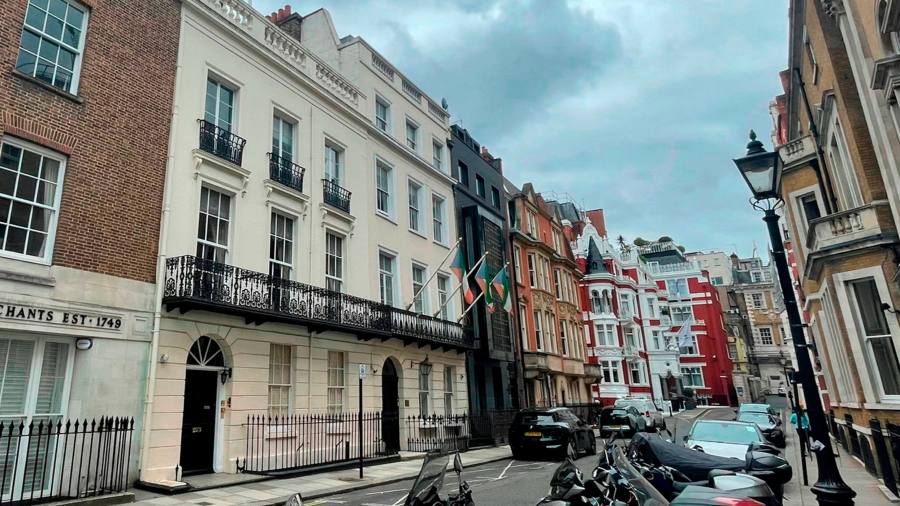
Receive free UK business & economy updates
We’ll send you a myFT Daily Digest email rounding up the latest UK business & economy news every morning.
Former Tory cabinet minister Amber Rudd is poised to become one of the first women to join Pratt’s, the London gentlemen’s club, as the debate over whether to admit female members rages across the men-only establishments of the UK capital’s “clubland”.
Pratt’s, situated in the basement of a London townhouse, was founded 166 years ago and is said to have been part of the inspiration for Blades, the club to which James Bond belonged in Ian Fleming’s novels.
Described by insiders as retaining a heavily traditional atmosphere, one of the longstanding customs at Pratt’s is that members call all male serving staff “George” and all female serving staff “Georgina”.
Rudd, a former women and equalities minister as well as ex-home secretary, was one of four women who had been proposed for membership at the social institution, said people familiar with the matter.
They are expected to learn in September whether they have been either accepted — or “blackballed” — by the existing membership, a group that includes a clutch of current and former MPs. Rudd declined to comment.

The club’s owner William Cavendish, Earl of Burlington, decided this spring that women would be allowed to join “with immediate effect” as a “positive, necessary and evolving change to enhance and invigorate the club”, according to a letter sent to members.
The change at Pratt’s has ignited a fresh round of debate at other gentlemen’s clubs in London’s West End over whether women should be allowed to join.
These include the lunchtime dining room the Beefsteak Club, the Garrick Club that is favoured by actors, and the staunchly traditional Boodle’s, according to members.
One woman acting in concert with male allies to change the rules in men-only clubland said that while the decor and menu at these institutions was often outmoded, her campaign was underpinned by a hard-nosed business rationale.
“You don’t go for the food or the furniture,” said the woman, who asked not to be named for fear of damaging her campaign. “Men do business where men gather, so why should anywhere be all-men if there’s going to be decision-making happening?”
London’s gentlemen’s clubs were designed to be social institutions, rather than forums for conducting business.
However, several stalwarts of the men-only clubs conceded that they were useful for forging business networks and gaining intelligence about certain industries.
One said: “Officially you’re not supposed to discuss business. If you’re caught bringing someone in as a business contact, it’s frowned upon.
“But of course business is done in the sense that friendships are made. As with much of business, it’s about being in the know, being on the inside.”
Emotions run high over the matter. A member at the Garrick Club, which has repeatedly descended into strife over the question of admitting women, said: “It’s absolutely anachronistic keeping women out. It’s the inadequate characters that cling to the male-only rule.”
Women-only establishments also exist in London, including the Mayfair-based University Women’s Club, which was set up in 1883 to provide an alternative to the gentlemen’s clubs.